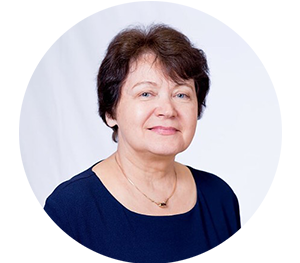The aim of the Laboratory is to create a purposeful programme of comparative psycho- and ethno-psycholinguistic research, which will make it possible to generalise the accumulated facts of linguistic and interlingual comparisons and data of associative experiments on the basis of statistical processing and deeper cultural interpretation, and thus contribute to solving interdisciplinary problems of linguistics.
Head of the laboratory:
Ph.D., Professor V.A. Pishchalnikova
Contacts:
pishchalnikova@mail.ru; Tel.: + 7 (916)5043826
Main areas of work of the laboratory
1.Coordination of scientific and teaching and methodological work of MSLU in the field of ethno- and psycholinguistic research:
– creation of a multi-lingual dictionary of basic values,
– creation of a German-Austrian-Russian dictionary of basic values,
– implementation of the project ‘Interactive map of basic values of the Russian Federation’,
– coordination of publications in the journal ‘Ethno-psycholinguistics’.
2.Development of a programme of verbal diagnostics of tension between social and ethnic groups.
3.Participation and holding of events related to the Laboratory (conferences, seminars, professional development programmes).
4.Development of cooperation with regional, all-Russian and foreign scientific centres.
5.Involvement of young specialists from MSLU and other universities of Russia and CIS countries in the work of the Laboratory.
6.Provision of consulting services to researchers of Russian and foreign universities
Research areas
- The study of psychologically relevant content and hierarchy of basic values of different linguocultures (Russian, German, Austrian, French, Swedish, Yakut, Chinese, etc.);
- Comparative psycholinguistic analysis of the content of basic values in Russia and other countries (England, China, Germany, etc.);
- A study of changes in language ability based on data from a psycholinguistic experiment;
- The associative field as a way of investigating psychologically relevant word meaning;
- Gender specificity of speech action (on the material of data from associative dictionaries);
- Psycholinguistic parameters for analysing speech action;
- Modelling the associative fields of different values;
- Specificity of associative data application for mastering foreign language vocabulary;
- Linguistic diagnosis of problematic areas of performance in cross-cultural mediation;
- Using ethnopsycholinguistic methods and data in the practice of teaching foreign languages and cultures.




